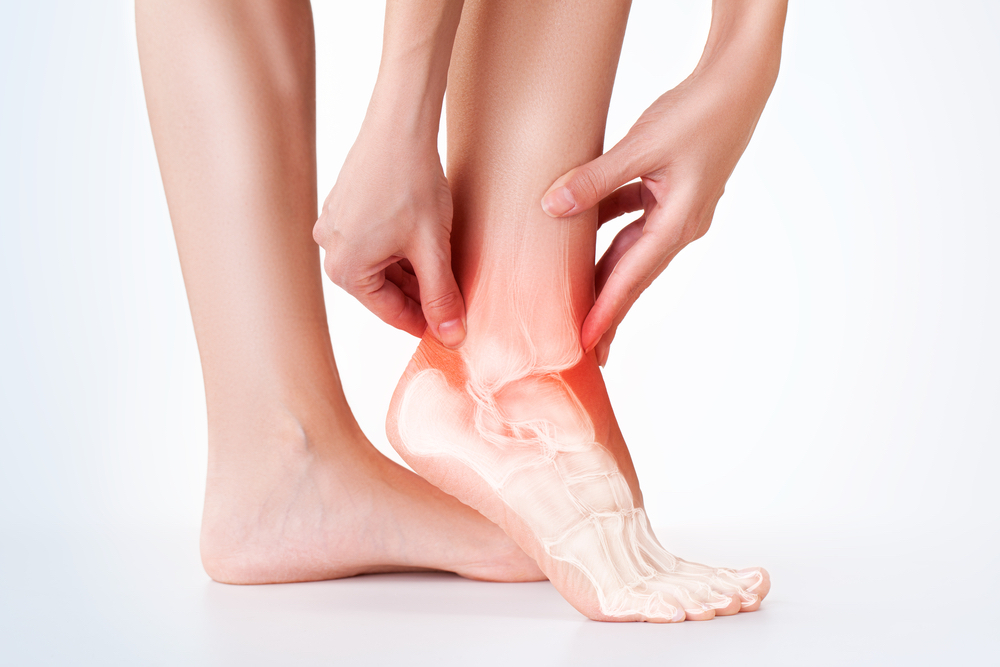Calcium is essential for maintaining the necessary level of bone mass to support the structures of the body. The body is constantly using calcium for the heart, blood, muscles and nerves. Calcium is also lost through normal bodily processes such as waste and the shedding of hair, fingernails, sweat and skin.
If a patient’s diet does not include enough calcium to replace what is used, the body will take calcium away from the bones, which weakens them and makes them more likely to fracture. Surprisingly, it is estimated that 70% of people do not get enough calcium in their diet, which has different effects on different age and population groups.
It is especially important for children and teens to have enough calcium to aid the development of their bones and bone mass. Over the long run, lack of sufficient calcium in the diet significantly increases the risk of developing osteoporosis (thinning of the bone). Osteoporosis can result in fractures in the bones in the spine, which in turn can lead to chronic pain and possibly deformity. This risk of developing osteoporosis is higher for older women.
The process of maintaining strong bones involves the following steps:
- Obtaining enough calcium in the diet by eating or drinking the recommended amounts of calcium-rich foods and drinks
- Consuming foods that allow maximum absorption of calcium from the gut
- Storing as much calcium in the bones as possible
- Preventing losses of calcium from the bones in the long term
Obtaining the Right Amount of Calcium in the Diet
The recommended amounts of calcium for adults are as follows:
- For people over 50 (and postmenopausal women): 1,500 milligrams of calcium per day with 400-800 i.u. of vitamin D.
- For people 25-50 years old (and premenopausal women): 1,000 milligrams of calcium per day with 400 i.u. of vitamin D.
Patients should note that consuming more than 2000 milligrams of calcium per day can be harmful to the kidneys and cause kidney stones. This does not occur when calcium is consumed in the recommended doses. Patients who already have kidney disease should consult a health professional before taking any supplemental calcium.
Dietary Sources of Calcium
By eating a diet that includes adequate amounts of the following nutritional foods, patients can maintain a healthy level of calcium through diet alone and without the use of supplements:
- Dairy products (e.g. yogurt, cheese and especially milk)
- Dark green leafy vegetables (e.g. spinach, broccoli and kale)
- Beans and peas (e.g. tofu, peanuts, peas, black beans)
- Some types of fish (e.g. salmon, sardines)
- Certain other foods with calcium (e.g. oranges, blackstrap molasses, almonds).
If one is not eating enough of the above foods as part of a daily diet, than calcium supplements may be a viable option to ensure that there is sufficient calcium intake.
Other Foods can Affect Calcium Absorption
 Certain nutrients and vitamins can help with the absorption of calcium or cause the body to excrete higher levels of calcium than the body normally expels. To make sure that enough calcium is consumed to balance what is expelled by the body, it is important for patients to be aware of how the following substances impact calcium absorption:
Certain nutrients and vitamins can help with the absorption of calcium or cause the body to excrete higher levels of calcium than the body normally expels. To make sure that enough calcium is consumed to balance what is expelled by the body, it is important for patients to be aware of how the following substances impact calcium absorption:
- Vitamin D increases the absorption rate of calcium in the gastrointestinal tract. This important nutrient is found naturally in only a few foods, including fatty fish (e.g. salmon), liver (and cod liver oil) and egg yolks. In the US, milk and some cereals and breads are fortified with vitamin D. It can also be taken through a nutritional supplement. Vitamin D is also gained by spending time in the sunshine.
- Protein is very important as a building block for repairing and replacing tissue, healing fractures and for the functioning of the immune system. However, some studies have shown that when patients consume too much protein in relation to the amount of calcium consumed, calcium is leached from the bones as excess protein is burned. While both protein and calcium are deemed necessary for healthy bones, more research is needed to determine the proper consumption ratio of protein to calcium and how the two substances affect each other (1).
- Sodium and chloride, found in table salt, increase urinary calcium excretion before it can be properly absorbed and utilized by the body for strong bones.
- Phosphoric acid is found in phosphorus and carbonated beverages. It is thought that phosphoric acid causes calcium to be replaced in the bone by the phosphoric acid. Although there is still research needed on this topic, milk is usually recommended over carbonated drinks to help maintain healthy bones.
- Caffeine from soft drinks, coffee and tea many lead to bone loss if the patient does not consume enough calcium.
As a final note of advice, patients should take care to always consult a medical professional before changing their diet or taking dietary supplements, natural supplements or vitamins. Working with a professional will also help patients develop and stick with a comprehensive program of consuming nutritious foods, avoiding excessive amounts of unhealthy foods, choosing nutritional supplements (when appropriate) and engaging in regular exercise.
Source: spine-health.com; Kelly Andrews, DC







